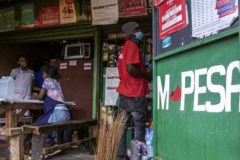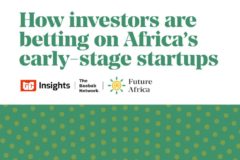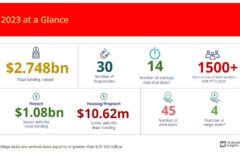“Informal markets are huge and emerging, and also account for over 65% of our country’s GDP,” said Tosin Eniolorunda, TeamApt’s CEO in his keynote speech at the recent Future of Commerce (FOC) conference hosted by TechCabal. His address, titled “Psychology of the Informal Market: Lessons from 400,000 Entrepreneurs” highlighted key lessons he has learnt in his journey of building a business banking solution for offline and informal businesses.
According to data from the World Bank, there are 4.45 commercial bank branches per 100,000 people in developing markets like Nigeria compared to the global average of 11.7 branches. This makes agency business banking a crucial alternative distribution strategy for underbanked and financially-underserved communities. But what does it take to scale localized financial services?
Eniolorunda shared how Moniepoint leveraged technology to help informal businesses grow and reach more customers. Moniepoint has gained significant traction in Nigeria starting off as the largest agency banking network in two years to now growing into one powering the success of merchants in running their businesses and servicing over 10 million customers.
According to him, the informal market had been ignored for too long; and the lack of attention presented an opportunity for TeamApt to build an offline payments system to address the financial inclusion gap.
“In doing this, we learnt that the informal markets are not trusting. So we built solutions which made settlement instant and they had no reason to doubt,” he says. “Every tech solution for the market must also be mobile-first, particularly in the design of user experience. This is because more than 80% of those that would be accessing your tech solution will be through mobile and Android phones.”
Furthermore, mobile devices are enabling commerce in the informal sector on a big scale as Africa is experiencing high smartphone and internet penetration in recent years. This presents a huge opportunity to drive mobile growth through apps and user-friendly web pages. As the informal sector grows, it’s expected that trust in using tech-enabled solutions will also grow.
For Eniolorunda, data consumption of the solution and a face-to-face customer support system are key to its high rate of adoption. He believes a solution built for the informal market must be optimized for low-data scenarios, and also where there is some level and element of direct human contact for the market to react well to solutions built for them.
Innovation is emerging in new ways as fintech startups address the needs of the informal sector with last-mile solutions in payment collections, agency banking networks, and mobile money. There is also the rise of Buy Now Pay Later (BNPL) services and mobile money operators adding credit facilities to better serve the market to scale. TeamApt’s work is focused on creating access to credit for informal businesses that enable them to scale, leveraging its tech, reach and resources.
Nigeria’s informal entrepreneurs are resilient and flexible enough to make business success with digital solutions, as Tosin Eniolorunda stated to complement insights from the session of Tobi Amira, TeamApt’s VP of Business Loans.
“This goes to show that if the infrastructural challenges are resolved for the informal sector with all the financial solutions and assistance they need to keep their businesses running, expanding and protected, they would certainly thrive.”
With over 400,000 businesses onboarded on TeamApt’s Moniepoint platform and a wealth of lessons drawn from them, Eniolorunda believes the journey ahead is a long one as the level of progress so far is just scratching the surface. “In the end, we all have the opportunity to create solutions to serve our different markets and to achieve our dreams and goals,” he says.
The 2022 Future of Commerce was organized to focus on Africa’s informal economy. As the informal sector is strengthening economic activity in Africa, experts and key players expect its digitisation to truly contribute to the future of commerce on the continent, as fintechs are also key to its large-scale growth.
You can watch and catch up on the 2022 Future of Commerce here.


















